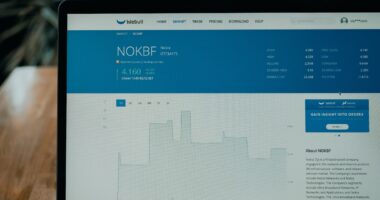Decentralized Autonomous Organizations, commonly referred to as DAOs, represent a novel approach to organizational governance that leverages blockchain technology. At their core, DAOs are entities that operate through smart contracts on a blockchain, allowing for automated decision-making processes without the need for centralized control. This structure enables members to participate in governance and decision-making through a token-based voting system, where each token typically represents a vote.
The transparency and immutability of blockchain technology ensure that all transactions and decisions are recorded and accessible to all members, fostering a sense of trust and accountability. DAOs can take various forms, from investment clubs to charitable organizations, and even decentralized finance (DeFi) protocols. The defining characteristic of a DAO is its decentralized nature, which empowers individuals to collaborate and make decisions collectively.
This contrasts sharply with traditional organizations, where decision-making is often concentrated in the hands of a few individuals or executives. By distributing power among all members, DAOs aim to create a more democratic and equitable framework for governance, where every participant has a voice in shaping the direction of the organization.
Key Takeaways
- DAOs, or Decentralized Autonomous Organizations, are organizations that operate without centralized control and are governed by smart contracts on a blockchain.
- The benefits of DAOs on Ethereum include increased transparency, reduced costs, and the ability to make decisions through a decentralized voting process.
- Challenges and risks associated with DAOs include security vulnerabilities, potential for governance disputes, and regulatory uncertainty.
- To participate in a DAO on Ethereum, individuals can acquire the organization’s native tokens, participate in governance votes, and contribute to the organization’s activities.
- Examples of successful DAOs on Ethereum include MakerDAO, MolochDAO, and The DAO, which have demonstrated the potential for decentralized governance and decision-making.
- The future of DAOs on Ethereum is expected to involve greater integration with DeFi protocols, improved governance mechanisms, and increased adoption by traditional organizations.
- The impact of DAOs on traditional organizations may include increased competition, the need to adapt to decentralized governance models, and potential regulatory challenges.
- Regulatory considerations for DAOs on Ethereum include compliance with securities laws, anti-money laundering regulations, and the potential for legal liability for participants.
The benefits of DAOs on Ethereum
Enhanced Transparency and Trust
One of the primary benefits of DAOs on Ethereum is the enhanced transparency they offer. Every action taken within a DAO is recorded on the Ethereum blockchain, allowing members to audit decisions and financial transactions in real-time. This level of transparency not only builds trust among participants but also reduces the potential for fraud or mismanagement, as all activities are publicly verifiable.
Global Collaboration and Innovation
Another significant advantage of DAOs on Ethereum is their ability to facilitate global collaboration. Traditional organizations often face barriers related to geography, time zones, and regulatory environments. In contrast, DAOs can bring together individuals from around the world, enabling them to collaborate seamlessly regardless of their physical location. This global reach allows for a diverse range of perspectives and expertise to be integrated into decision-making processes, ultimately leading to more innovative solutions and outcomes.
Frictionless Transactions and Incentives
Furthermore, the use of Ethereum’s native cryptocurrency, Ether (ETH), allows for frictionless transactions and incentivizes participation through token rewards.
The challenges and risks associated with DAOs

Despite their many advantages, DAOs are not without challenges and risks. One of the most pressing concerns is the potential for governance issues arising from the token-based voting system. In many cases, those who hold a larger number of tokens may exert disproportionate influence over decisions, leading to a concentration of power that undermines the democratic principles that DAOs aim to uphold.
This phenomenon, often referred to as “token-weighted voting,” can result in decisions that favor the interests of a few over the collective good. Additionally, the reliance on smart contracts introduces technical vulnerabilities that can be exploited by malicious actors. Bugs or flaws in the code can lead to significant financial losses or even the collapse of the DAO.
High-profile incidents, such as the infamous DAO hack in 2016, serve as stark reminders of the potential risks associated with poorly designed smart contracts. As such, ensuring robust security measures and thorough audits of smart contracts is essential for mitigating these risks and protecting the assets held by DAOs.
How to participate in a DAO on Ethereum
| Step | Description |
|---|---|
| 1 | Acquire Ether (ETH) to use for transactions and fees |
| 2 | Choose a DAO platform such as Aragon, Moloch, or DAOstack |
| 3 | Create a digital wallet compatible with the chosen platform |
| 4 | Research and select a DAO to join based on your interests and values |
| 5 | Follow the specific instructions for joining the chosen DAO |
| 6 | Participate in governance and decision-making processes within the DAO |
Participating in a DAO on Ethereum typically involves several steps, starting with acquiring the specific tokens associated with that DAO. These tokens often serve as both governance tokens and utility tokens within the ecosystem. Users can purchase these tokens through decentralized exchanges or directly from the DAO’s treasury if it offers a token sale.
Once an individual holds these tokens, they gain access to governance rights, allowing them to vote on proposals and participate in discussions regarding the direction of the organization. Engagement within a DAO can take many forms beyond just voting. Members are often encouraged to contribute their skills and expertise to various projects or initiatives within the organization.
This could involve anything from developing new features for a dApp to marketing efforts aimed at increasing community engagement. Many DAOs also have dedicated communication channels, such as Discord or Telegram groups, where members can collaborate and share ideas. Active participation not only enhances the individual’s experience but also strengthens the overall community and fosters a sense of belonging among members.
Examples of successful DAOs on Ethereum
Several DAOs have emerged on Ethereum that exemplify the potential of this organizational model. One notable example is MakerDAO, which governs the DAI stablecoin—a decentralized stablecoin pegged to the US dollar. MakerDAO allows token holders to vote on key parameters affecting DAI’s stability and governance, such as collateral types and risk parameters.
The success of MakerDAO has demonstrated how DAOs can effectively manage complex financial systems while maintaining decentralization. Another prominent example is Gitcoin, a platform that connects developers with funding opportunities through community-driven grants. Gitcoin operates as a DAO by allowing its community members to vote on which projects should receive funding through its grant rounds.
This model not only incentivizes innovation within the Ethereum ecosystem but also fosters collaboration among developers and supporters who share common goals. The success of Gitcoin highlights how DAOs can facilitate funding mechanisms that empower creators while ensuring community involvement in decision-making processes.
The future of DAOs on Ethereum

The future of DAOs on Ethereum appears promising as advancements in blockchain technology continue to evolve. With ongoing developments in layer-2 solutions and interoperability protocols, DAOs may become more efficient and accessible than ever before. These innovations could reduce transaction costs and improve scalability, enabling DAOs to handle larger volumes of transactions while maintaining low fees for participants.
Moreover, as more individuals become familiar with blockchain technology and its applications, we can expect an increase in participation within DAOs across various sectors. From social impact initiatives to creative projects, DAOs have the potential to disrupt traditional organizational structures by providing alternative models for collaboration and governance. As awareness grows about the benefits of decentralized governance, we may witness an influx of new DAOs emerging to address specific needs within communities or industries.
The impact of DAOs on traditional organizations
DAOs have the potential to significantly impact traditional organizations by challenging established norms around governance and decision-making processes. As more individuals experience the benefits of decentralized governance through DAOs, there may be a shift in expectations regarding transparency and accountability within conventional organizations. Employees and stakeholders may increasingly demand greater involvement in decision-making processes, leading traditional organizations to adopt more democratic practices.
Furthermore, the rise of DAOs could inspire traditional organizations to explore hybrid models that incorporate elements of decentralization while retaining some centralized control. For instance, companies might implement token-based voting systems for specific decisions or create community-driven initiatives that allow employees to propose projects or changes within the organization. This blending of traditional structures with decentralized principles could foster innovation and adaptability in an ever-changing business landscape.
Regulatory considerations for DAOs on Ethereum
As DAOs continue to gain traction within the blockchain ecosystem, regulatory considerations are becoming increasingly important. Governments around the world are grappling with how to classify and regulate these entities, given their unique characteristics that blur the lines between corporations, cooperatives, and non-profit organizations. The lack of clear regulatory frameworks poses challenges for DAOs seeking legitimacy and compliance with existing laws.
One key area of concern is how securities regulations apply to DAO tokens. In many jurisdictions, tokens that confer governance rights may be classified as securities, subjecting them to stringent regulatory requirements. This uncertainty can deter potential participants from engaging with DAOs or lead existing DAOs to alter their structures to avoid regulatory scrutiny.
As regulators continue to develop frameworks for blockchain-based entities, it will be crucial for DAOs to navigate these complexities while maintaining their core principles of decentralization and autonomy. In conclusion, while DAOs present exciting opportunities for innovation and collaboration within the Ethereum ecosystem, they also face significant challenges that must be addressed as they evolve. The interplay between technological advancements, regulatory developments, and societal expectations will shape the future landscape of DAOs and their impact on both decentralized and traditional organizational structures.
The Expansion of Decentralized Autonomous Organizations on Ethereum has been a hot topic in the blockchain community. One related article that delves into the potential of decentralized applications on the Ethereum network can be found at this link. This article discusses the basics of Ethereum and how it is revolutionizing the way we think about decentralized systems. It provides insights into the possibilities of smart contracts and how they can be used to create autonomous organizations that operate without the need for traditional intermediaries.
FAQs
What is a Decentralized Autonomous Organization (DAO)?
A Decentralized Autonomous Organization (DAO) is an organization that operates through rules encoded as a computer program, without the need for a central authority. It is typically built on a blockchain platform, such as Ethereum, and operates using smart contracts.
How does a DAO operate on the Ethereum platform?
DAOs on the Ethereum platform operate using smart contracts, which are self-executing contracts with the terms of the agreement directly written into code. These smart contracts enable the DAO to automate decision-making processes and execute actions based on predefined rules.
What are the benefits of DAOs on Ethereum?
Some benefits of DAOs on Ethereum include increased transparency, reduced operational costs, and the ability to operate without a central authority. Additionally, DAOs can facilitate decentralized decision-making and enable community governance.
What are some examples of DAOs on the Ethereum platform?
Examples of DAOs on the Ethereum platform include projects like The DAO, Aragon, and MolochDAO. These DAOs are designed to facilitate various functions, such as decentralized investment management, governance, and decision-making processes.
What are the potential challenges of DAOs on Ethereum?
Challenges associated with DAOs on Ethereum include security vulnerabilities, regulatory uncertainties, and the potential for governance disputes. Additionally, the complexity of smart contract development and the need for robust governance mechanisms are important considerations for DAOs on Ethereum.





